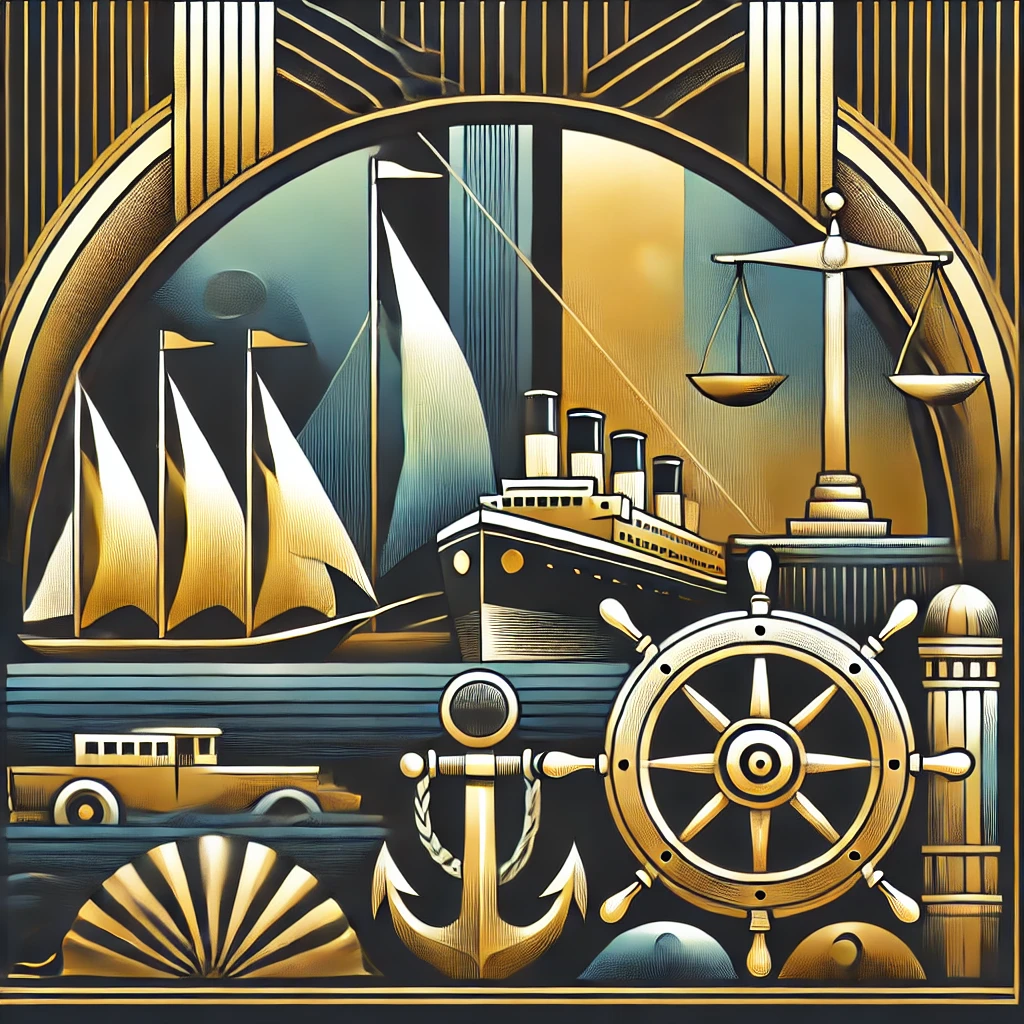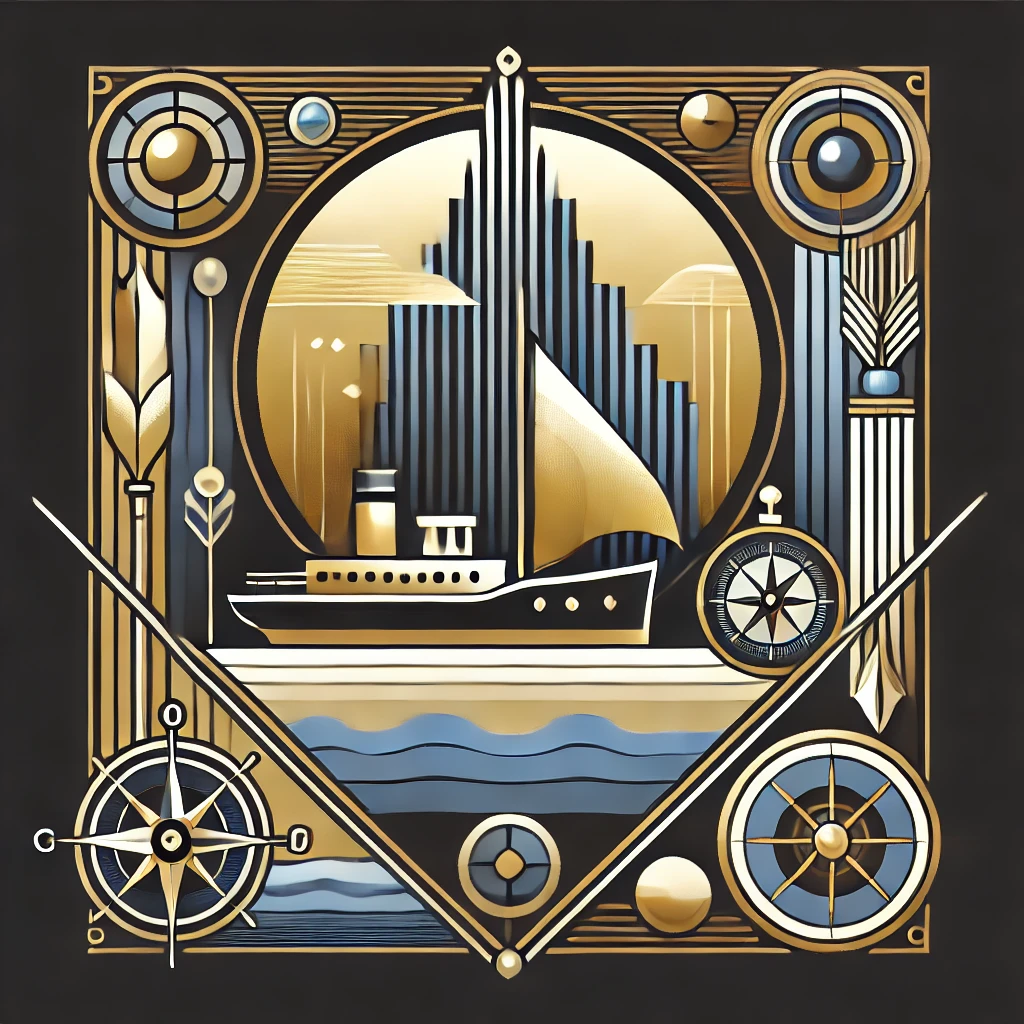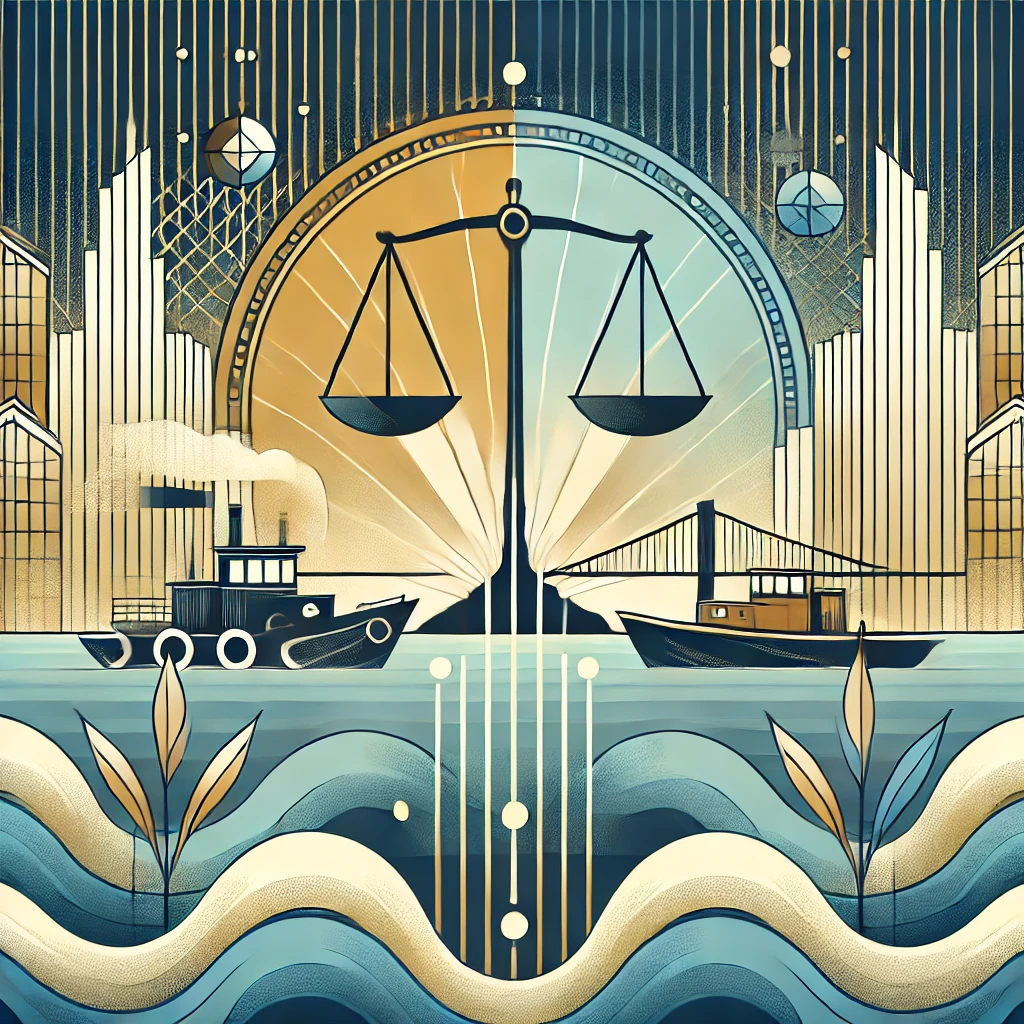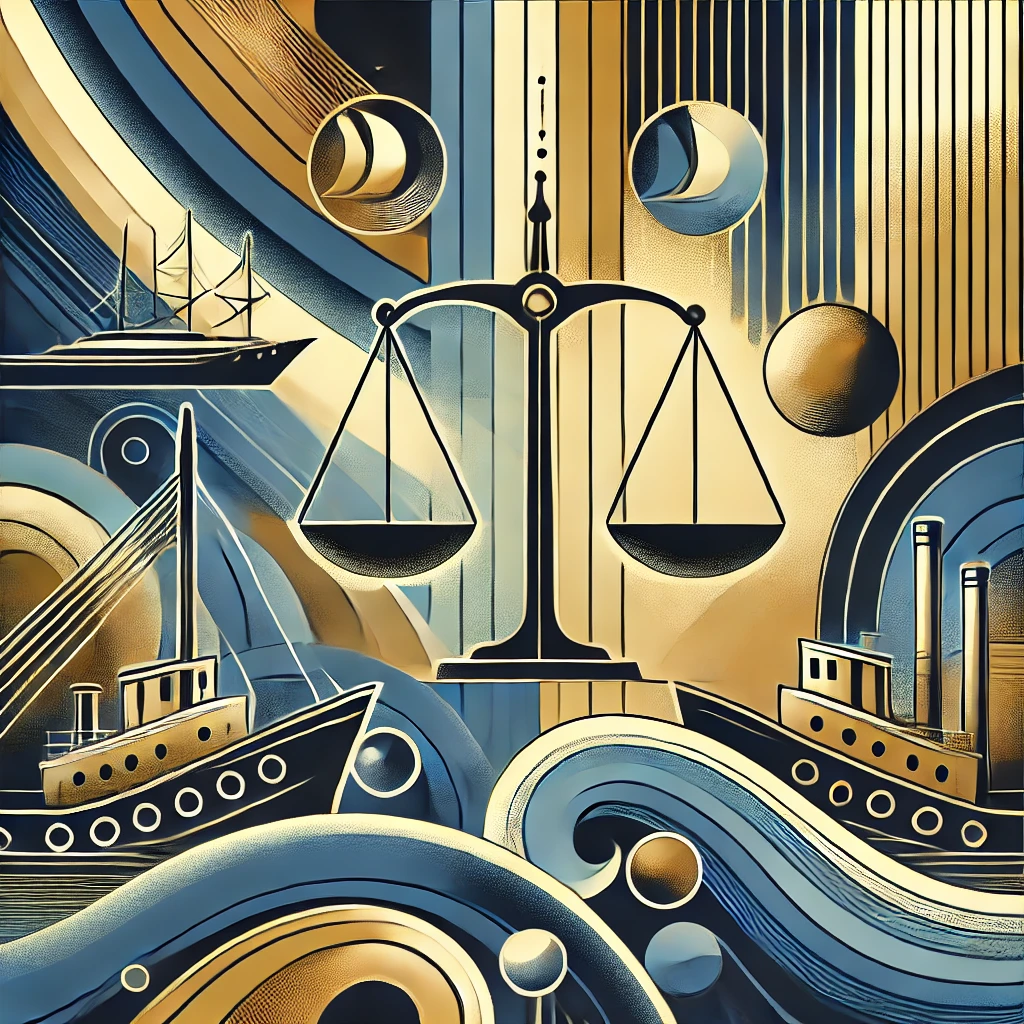
Maritime Lawyer Bahrain: A Complete Guide
Maritime law, also known as admiralty law, is a specialized area of law that governs maritime activities, including navigation, shipping, and ocean-related commerce. In Bahrain, maritime law plays a significant role due to the country’s strategic location in the Arabian Gulf, which makes it a key hub for international trade and shipping. This comprehensive guide explores the fundamentals of maritime law in Bahrain, the role of a Maritime Lawyer Bahrain, and how the legal framework impacts maritime operations.
A Maritime Lawyer Bahrain is an essential partner for individuals, companies, and ship owners involved in maritime activities. This guide will provide an in-depth understanding of the laws and regulations that apply to maritime operations in Bahrain, the various types of disputes that may arise, and the legal resources available to help navigate complex maritime matters.

1. Introduction to Maritime Law in Bahrain
Maritime law is an area of law that governs issues related to maritime navigation, shipping, and marine commerce. It is designed to regulate private maritime disputes and protect the rights of parties engaged in maritime business. Maritime law in Bahrain is primarily based on the Maritime Code and international conventions that the country has ratified, including the United Nations Convention on the Law of the Sea (UNCLOS).
A Maritime Lawyer Bahrain specializes in all aspects of maritime law, including cargo disputes, marine insurance, ship registration, and issues involving seafarers. They provide guidance on complying with Bahraini maritime regulations, ensuring that maritime transactions are conducted smoothly and efficiently.
2. Key Areas of Maritime Law in Bahrain
2.1 Ship Registration and Licensing
One of the fundamental areas of maritime law is ship registration and licensing. In Bahrain, vessels must be registered with the Ports and Maritime Affairs Directorate (PMAD), a government body responsible for overseeing maritime activities and ensuring compliance with local regulations. This process involves providing detailed information about the ship, its owners, and its intended use.
What is the process for ship registration in Bahrain?
The process for ship registration in Bahrain involves submitting an application to the Ports and Maritime Affairs Directorate (PMAD), along with all required documents, including proof of ownership, tonnage details, and safety certificates. Consulting a Maritime Lawyer Bahrain can help simplify the registration process and ensure compliance with all legal requirements.
2.2 Maritime Contracts
Maritime contracts are agreements related to shipping, cargo, and marine services. These include charter parties, bills of lading, and contracts for the sale and purchase of vessels. A Maritime Lawyer Bahrain can assist with drafting, reviewing, and negotiating these contracts to ensure that their clients’ interests are protected.
2.3 Maritime Liens and Mortgages
A maritime lien is a claim against a ship for services rendered or damages caused. It gives creditors the right to take legal action to recover their dues. Maritime mortgages are loans secured by a ship, which can be used to finance vessel purchases or other maritime activities. The laws governing maritime liens and mortgages in Bahrain are aimed at protecting creditors while providing a clear process for enforcing claims.
How are maritime liens enforced in Bahrain?

Maritime liens are enforced by obtaining a court order authorizing the arrest of the vessel. The creditor may then proceed to auction the vessel to recover the amount owed. Consulting a Maritime Lawyer Bahrain is essential for navigating this process and ensuring compliance with legal requirements.
3. Maritime Disputes and Resolution
3.1 Cargo Disputes
Cargo disputes are among the most common maritime issues and can arise from damage or loss of goods during transit. Bahrain follows international conventions like the Hague-Visby Rules, which outline the rights and responsibilities of carriers and cargo owners. A Maritime Lawyer Bahrain can provide representation in disputes involving cargo claims, ensuring that clients receive fair compensation.
What are common causes of cargo disputes in Bahrain?
Common causes of cargo disputes in Bahrain include mishandling of goods, improper stowage, delays in delivery, and cargo damage during transit. A Maritime Lawyer Bahrain can help resolve these disputes through litigation or arbitration.
3.2 Salvage and Towage
Salvage refers to rescuing a ship or its cargo from peril, while towage involves pulling a vessel from one place to another. Salvage laws in Bahrain are designed to encourage rescue operations and ensure that salvors are compensated for their services. The International Convention on Salvage serves as the basis for salvage operations in Bahrain.
3.3 Marine Insurance
Marine insurance is crucial for protecting vessels, cargo, and maritime liabilities. Insurance policies typically cover risks such as collision, fire, and natural disasters. A Maritime Lawyer Bahrain can assist with drafting marine insurance contracts, ensuring compliance with Bahraini laws, and representing clients in disputes involving insurance claims.
How does marine insurance work in Bahrain?
Marine insurance in Bahrain covers a range of maritime risks, including cargo loss, damage to vessels, and third-party liabilities. Policies are regulated by the Central Bank of Bahrain and must comply with Bahraini law. A Maritime Lawyer Bahrain can provide guidance on selecting the right policy and navigating disputes.
4. International Maritime Conventions
Bahrain is a signatory to various international conventions that regulate maritime law, including:
- United Nations Convention on the Law of the Sea (UNCLOS): Governs the use of the world’s oceans and the rights of nations concerning territorial waters.
- International Convention for the Prevention of Pollution from Ships (MARPOL): Sets standards for minimizing marine pollution from ships.
- International Convention on Standards of Training, Certification, and Watchkeeping for Seafarers (STCW): Establishes requirements for seafarer training and certification.
What international conventions govern maritime law in Bahrain?
Maritime law in Bahrain is governed by international conventions such as UNCLOS, MARPOL, and STCW. These conventions set global standards for maritime operations, safety, and environmental protection.
5. Environmental and Safety Regulations
5.1 Marine Pollution Control
Bahrain takes marine pollution seriously, with regulations in place to prevent oil spills, hazardous waste discharge, and other forms of marine pollution. The Supreme Council for Environment (SCE) is responsible for monitoring compliance and enforcing environmental regulations related to maritime activities.
What are Bahrain’s laws on marine pollution?
Bahrain’s marine pollution laws are based on international standards such as MARPOL. The Supreme Council for Environment (SCE) is responsible for monitoring compliance, conducting inspections, and enforcing regulations.
5.2 Safety Standards
Safety standards for ships operating in Bahraini waters are governed by the Ports and Maritime Affairs Directorate (PMAD). These regulations cover areas like vessel stability, fire safety, life-saving appliances, and navigation systems. A Maritime Lawyer Bahrain can help shipowners understand and comply with these standards.
6. Government Agencies Involved in Maritime Law
Several government agencies play an important role in enforcing maritime law in Bahrain, including:
- Ports and Maritime Affairs Directorate (PMAD): Oversees shipping operations, vessel registration, and port activities.
- Supreme Council for Environment (SCE): Monitors and enforces environmental regulations to protect marine life and prevent pollution.
- Central Bank of Bahrain (CBB): Regulates marine insurance policies and ensures compliance with Bahraini law.
For more information on these agencies, visit the Ports and Maritime Affairs Directorate.

What government agencies regulate maritime activities in Bahrain?
Maritime activities in Bahrain are regulated by the Ports and Maritime Affairs Directorate (PMAD), the Supreme Council for Environment (SCE), and the Central Bank of Bahrain (CBB). These agencies ensure compliance with maritime regulations, environmental standards, and insurance policies.
7. Role of a Maritime Lawyer in Bahrain
A Maritime Lawyer Bahrain specializes in providing legal assistance to individuals, shipowners, cargo owners, and other maritime stakeholders. Their role includes:
- Drafting Contracts: Drafting and reviewing contracts related to shipping, chartering, and marine services.
- Dispute Resolution: Representing clients in disputes involving cargo damage, maritime accidents, or breaches of contract.
- Regulatory Compliance: Ensuring that clients comply with Bahraini maritime laws, international conventions, and environmental regulations.
- Ship Arrest and Release: Assisting with the arrest of vessels to enforce claims and securing their release upon payment or settlement of the dispute.
How can a Maritime Lawyer Bahrain assist with maritime issues?
A Maritime Lawyer Bahrain can assist with contract drafting, dispute resolution, vessel registration, and compliance with maritime regulations. They also represent clients in court or arbitration proceedings related to maritime disputes.
8. Judicial Review in Maritime Law
In certain cases, decisions made by maritime authorities or regulatory bodies may be subject to judicial review. A Maritime Lawyer Bahrain can assist clients in challenging unfavorable decisions, ensuring that their rights are protected and that any regulatory action is justified.
What is judicial review in maritime law?
Judicial review in maritime law allows individuals to challenge decisions made by maritime authorities, such as vessel detention or regulatory penalties, if they believe the decision was unfair or unlawful.
9. Frequently Asked Questions about Maritime Law in Bahrain
1. What is maritime law?
Maritime law, also known as admiralty law, governs maritime activities such as shipping, navigation, and ocean commerce.
2. How does maritime law apply to cargo disputes in Bahrain?
Maritime law in Bahrain applies to cargo disputes by outlining the responsibilities of carriers and cargo owners under the Hague-Visby Rules.
3. Can foreign vessels operate in Bahraini waters?
Yes, foreign vessels can operate in Bahraini waters, provided they comply with local regulations and obtain necessary permits from the Ports and Maritime Affairs Directorate (PMAD).
4. What is the role of the Supreme Council for Environment (SCE)?
The Supreme Council for Environment (SCE) monitors marine pollution and enforces environmental regulations to protect Bahrain’s marine environment.
5. What documents are required for ship registration in Bahrain?
Documents required for ship registration include proof of ownership, tonnage details, safety certificates, and identification documents.
6. What is the difference between a maritime lien and a mortgage?
A maritime lien is a claim against a ship for services or damages, while a maritime mortgage is a loan secured by a vessel.
7. How can a Maritime Lawyer Bahrain help with ship arrest?
A Maritime Lawyer Bahrain can help obtain a court order for ship arrest, ensuring that legal requirements are met for enforcing a claim.
8. What international conventions govern maritime law in Bahrain?
International conventions such as UNCLOS, MARPOL, and STCW govern maritime law in Bahrain, setting standards for safety, environmental protection, and training.
9. How are salvage operations regulated in Bahrain?
Salvage operations in Bahrain are regulated by the International Convention on Salvage, which outlines the rights and responsibilities of salvors and vessel owners.
10. Can I challenge a decision made by maritime authorities?
Yes, decisions made by maritime authorities can be challenged through judicial review if there are valid grounds to do so.
10. Conclusion

Maritime law is a complex and specialized field that plays a crucial role in ensuring the smooth operation of maritime activities in Bahrain. Whether you are a shipowner, cargo owner, or involved in the shipping industry, understanding the laws that govern maritime operations is essential for ensuring compliance and protecting your rights. A Maritime Lawyer Bahrain can provide the expertise needed to navigate the complexities of maritime law, represent clients in disputes, and ensure that their interests are protected.
For more information on maritime regulations or to seek expert legal assistance, contact Alya Al Zeera Lawyer & Legal Services. Alya Al Zeera offers specialized services for maritime law, helping clients understand their rights and obligations in the Bahraini maritime sector.
A Maritime Lawyer Bahrain can make a significant difference in how smoothly maritime operations are conducted, whether for individual clients or companies. Their expertise in maritime law helps navigate the complexities of Bahraini regulations, ensuring that maritime businesses operate in compliance with local and international standards.
Understanding the role of Maritime Lawyer Bahrain is especially critical when dealing with complex matters such as maritime contracts, ship registration, maritime insurance, and maritime liens. These lawyers can provide invaluable support in understanding the laws that govern maritime operations, representing clients in disputes, and helping them secure their interests.
Maritime law in Bahrain is an evolving field that is influenced by global changes in shipping practices, international regulations, and environmental policies. A Maritime Lawyer Bahrain can guide you through these evolving requirements and ensure that you remain compliant at all times.
If you are interested in more information about maritime laws in Bahrain or need expert legal advice, consider reaching out to Alya Al Zeera Lawyer & Legal Services, who specializes in maritime legal assistance.
Furthermore, maritime activities in Bahrain are governed by agencies such as Ports and Maritime Affairs Directorate (PMAD), which oversees shipping operations, and the Supreme Council for Environment (SCE), which ensures environmental compliance. Compliance with the standards set by these agencies is crucial, and with the assistance of a Maritime Lawyer Bahrain, stakeholders can ensure they are on the right side of the law.
The expertise of a Maritime Lawyer Bahrain can help in representing clients before regulatory bodies, assisting in obtaining necessary permits, and making sure all maritime operations are conducted under the legal umbrella, ensuring smooth navigation of maritime affairs in Bahrain.
